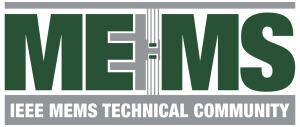Dr. Nagle is Distinguished Professor of Electrical and Computer Engineering at NCSU, and Professor of Biomedical Engineering at UNC & NCSU. He was the Founding Chair of the UNC-NCSU Joint Department of Biomedical Engineering from 2003 to 2009. Dr. Nagle is widely published in data acquisition and signal processing, is coauthor of textbooks in digital logic design and digital control systems, and co-edited a handbook on machine olfaction. In recent years, he has focused his research on machine olfaction and experimented with its use in food processing, environmental monitoring, and medical diagnostics. Dr. Nagle received the BSEE and MSEE degrees from the University of Alabama, the PhD degree (Electrical Engineering) from Auburn University, and the MD degree from the University of Miami School of Medicine. He is a Life Fellow of Institute of Electrical and Electronics Engineers (IEEE) and a Fellow of the American Institute for Medical and Biological Engineering (AIMBE). He served as IEEE President in 1994. He also served as Editor-in-Chief of the IEEE Sensors Journal in 2003-2009 and President of the IEEE Sensors Council in 2014-2015. He is a registered professional engineer.
Organizer Type: General
Mike McShane is professor and director of graduate programs in the Department of Biomedical Engineering at Texas A&M University. His laboratory focuses on the modeling, design, fabrication and testing of small-scale analytical devices, particularly photoluminescent biosensors. McShane’s research and educational activities cover many areas of biomedical engineering, including biomaterials, molecular biology, biomedical optics, biotransport, bioinstrumentation, signal processing and medical device design. McShane’s laboratory produces and tests sensor systems using microscale and nanoscale fabrication approaches of self-assembly and photolithography as well as develops strategies for deploying these in vitro and in vivo. Examples of current technologies include hybrid polymer-protein-dye materials shaped into nanoparticles, microparticles, microcapsules and microstructured systems for “smart” sensing implants.











